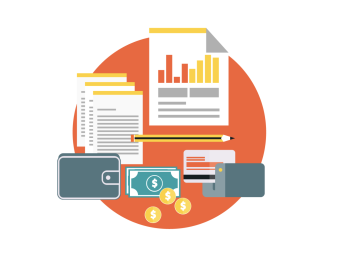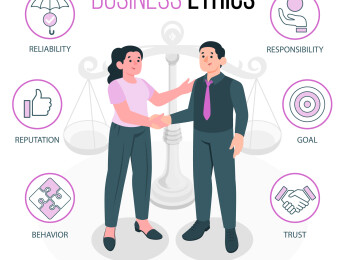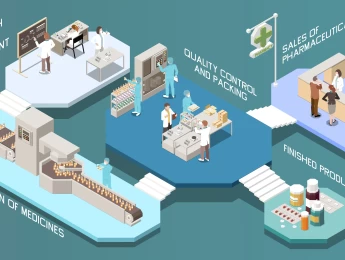- Table of Contents
- Introduction
- What Can Trigger Anger and Frustration at Work?
- Unrealistic Expectations
- Poor Communication
- Micromanagement
- Lack of Recognition
- Office Politics
- Work-life Imbalance
- Lack of Growth Opportunities
- The Effects of Being Chronically Angry at Work
- Impaired Decision-making
- Decreased Productivity
- Strained Relationships
- Health Problems
- Reputation Damage
- Decreased Job Satisfaction
- Increased Absenteeism
- Is There a Place for Emotions at Work?
- Acknowledging Emotions
- The Impact of Emotional Intelligence
- Balancing Professionalism and Authenticity
- Emotional Intelligence Training
- The 'Excelling in Emotional Intelligence' Course
- 15 Ways to Manage Anger at Work
- 1. Pause and Reflect
- 2. Practise Deep Breathing
- 3. Seek Support
- 4. Communicate Assertively
- 5. Practise Active Listening
- 6. Manage Workload and Expectations
- 7. Develop Emotional Intelligence
- 8. Utilise Stress Management Techniques
- 9. Use Humour
- 10. Take Regular Breaks
- 11. Seek Feedback
- 12. Practice Forgiveness
- 13. Engage in Self-Care
- 14. Seek Professional Help if Needed
- 15. Cultivate a Positive Work Culture
- Conclusion
Introduction
Anger and frustration are natural human emotions that can arise in various aspects of our lives, including the workplace. While these emotions may not be inherently negative, unmanaged anger can harm our well-being, relationships, and overall productivity. In this blog post, we will explore the triggers of anger at work, the consequences of chronic anger, and the importance of emotions in the workplace. Most importantly, we will provide you with 15 practical and effective strategies to manage your anger at work, enabling you to cultivate a more positive and productive work environment.
What Can Trigger Anger and Frustration at Work?
Understanding the specific triggers of anger and frustration at work is crucial for effective anger management. While triggers can vary from person to person, several common factors contribute to workplace anger.
Unrealistic Expectations
The pressure of meeting unrealistic expectations, whether in terms of workloads or tight deadlines, can create a breeding ground for frustration and anger. Employees may feel overwhelmed, leading to a sense of powerlessness and heightened stress levels. It's not merely the volume of work but the perception of impossibility that triggers these emotions. Addressing this trigger involves setting realistic goals, clear communication, and understanding individual capacities.
Poor Communication
Inadequate or unclear communication is a pervasive trigger for anger in the workplace. Misunderstandings, conflicts, and frustration often arise when colleagues or superiors fail to convey information effectively. Being left out of crucial discussions, misinterpreting messages, or receiving incomplete information can breed a toxic atmosphere. Clear and transparent communication is essential to mitigate this trigger, fostering an environment of understanding and collaboration.
Micromanagement
The stifling effects of micromanagement can lead to employees feeling undervalued, disempowered, and frustrated. In fact, according to a recent Accountemps study, as cited by Acuity Training, approximately 59% of individuals have experienced micromanagement at some stage in their professional journey. Among those who encountered micromanagers, 68% noted a decline in morale, while 55% reported a negative impact on their overall productivity. Constant monitoring, excessive control, and a lack of autonomy can erode motivation and job satisfaction. The feeling that one's abilities and judgement are constantly questioned creates a hostile work environment. Balancing supervision with trust and autonomy is crucial to alleviate this trigger and maintain a healthy work dynamic.
Lack of Recognition
The absence of appreciation for hard work can be a potent source of resentment and anger. When efforts go unnoticed or are undervalued, employees may feel a lack of acknowledgement, eroding morale and fostering a sense of injustice. Implementing a culture of recognition, where achievements are acknowledged and celebrated, can significantly mitigate this trigger, promoting a positive and appreciative work environment. It’s also recommended to recognise an employee every seven days, according to Gallup.
Office Politics
Navigating the complexities of office politics, dealing with favouritism, and experiencing unfair treatment can significantly trigger anger. Unethical behaviour, nepotism, or a lack of transparency can create an environment of mistrust and frustration. Establishing clear policies, promoting fairness, and addressing unethical behaviour are essential steps to counteract this trigger and foster a more equitable workplace.
Work-life Imbalance
When work demands spill over into personal life, causing excessive stress and disrupting the delicate work-life balance, it can result in heightened anger and frustration. Feeling constantly overwhelmed and unable to find time for personal needs and relationships can lead to emotional strain. Encouraging practices that support a healthy work-life balance, such as flexible scheduling and realistic workload expectations, can mitigate this trigger.
Lack of Growth Opportunities
Stagnation and a lack of avenues for professional development can cause frustration and anger. Employees who feel trapped in their current roles without prospects for advancement may experience dissatisfaction and resentment. Establishing clear paths for career growth, providing training opportunities, and recognising and nurturing talent within the organisation can help alleviate this trigger, promoting a sense of fulfilment and progress.
By recognising and addressing these common triggers, individuals can become more self-aware and develop tailored coping mechanisms. Personalised strategies for managing anger can be crucial, considering that each person's triggers may be unique. Self-reflection is pivotal in identifying these triggers and building a foundation for effective anger management.
The Effects of Being Chronically Angry at Work
According to Gitnux, 23% of employees in the UK said that anger is the major cause of stress at work. This can have wide-ranging and detrimental effects, not only on the individual experiencing the anger but also on the overall work environment. Here are some of the significant consequences of being chronically angry at work:
Impaired Decision-making
Chronic anger can potentially impair cognitive functioning, leading to impulsive decision-making and poor judgment. When individuals are overwhelmed by anger, their ability to think rationally and objectively diminishes. This can result in hasty and irrational choices that may have long-term repercussions for both the individual and the organisation. Recognising and addressing chronic anger is essential to maintaining sound decision-making processes within the workplace.
Decreased Productivity
Continuous anger drains energy and focus, resulting in decreased productivity and a lower quality of work. The intense emotional state of chronic anger can distract individuals from their tasks, leading to decreased efficiency and an inability to concentrate on important work-related responsibilities. Addressing chronic anger is crucial for maintaining a healthy and vibrant work environment conducive to high productivity levels.
Strained Relationships
Uncontrolled and frequent displays of anger can strain relationships with colleagues, supervisors, and subordinates. Chronic anger creates a hostile work environment, eroding trust, collaboration, and effective teamwork. This strained dynamic can further exacerbate conflicts, hinder effective communication, and ultimately impede overall productivity. Addressing chronic anger is an individual concern and a crucial aspect of fostering a positive and cooperative workplace culture.
Health Problems
Prolonged exposure to chronic anger is associated with increased stress levels, which can have detrimental effects on both physical and mental health. Chronic stress resulting from anger can contribute to various health issues such as high blood pressure, heart disease, weakened immune function, sleep disturbances, and anxiety disorders. Recognising the impact of chronic anger on health underscores the importance of implementing strategies to manage and mitigate this emotional response.
Reputation Damage
Frequent displays of anger can damage one's professional reputation and hinder career growth opportunities. Coworkers and superiors may perceive individuals who chronically express anger as unpredictable, difficult to work with, and lacking emotional control. This perception can impede professional relationships, limit collaboration, and hinder organisational advancement. Managing chronic anger is not only about personal well-being but also about maintaining a positive professional image.
Decreased Job Satisfaction
Chronic anger can lead to decreased job satisfaction and overall dissatisfaction with one's work environment. When anger becomes a dominant emotion, it can overshadow positive aspects of the job, making it challenging to find fulfilment and happiness in the workplace. Addressing chronic anger is crucial for fostering a work environment where individuals can derive satisfaction and meaning from their professional endeavours.
Increased Absenteeism
Employees who are chronically angry at work may resort to increased absenteeism or sick leave as a way to cope with the stress and negative emotions they experience. Frequent absences can disrupt workflow, create additional challenges for colleagues, and impact the organisation's overall functioning. Recognising and addressing chronic anger is essential for maintaining a stable and consistent workforce.
Understanding the profound effects of chronic anger at work emphasises the need for actively managing and addressing anger. Individuals can mitigate these negative consequences by implementing effective anger management techniques and contributing to a more positive, harmonious, and productive work environment.
Consequences | Mitigation Strategies |
Impaired Decision-making | Practice mindfulness to enhance focus. |
Decreased Productivity | Establish realistic goals and task priorities. |
Strained Relationships | Promote team-building activities regularly. |
Health Problems | Integrate wellness programmes for stress relief. |
Reputation Damage | Participate in professional development courses. |
Table 1: Strategies to mitigate consequences
Is There a Place for Emotions at Work?
While workplaces often emphasise professionalism and detachment, it is essential to acknowledge and understand the significant role that emotions play in the workplace. Emotions provide valuable insights into individual and team dynamics, and suppressing them entirely can lead to a lack of authenticity and disengagement. The key is not to eliminate emotions from the workplace but rather to manage and express them constructively. This section explores the importance of emotions and how emotional intelligence can contribute to a healthier work environment.
Acknowledging Emotions
In many professional settings, employees are expected to control their emotions. However, emotions are an integral part of the human experience and naturally surface in various situations. Instead of suppressing emotions, acknowledging and understanding them can lead to more authentic interactions and better team dynamics. Leaders who are attuned to the emotions of their team members can create an environment that fosters open communication and trust.
The Impact of Emotional Intelligence
Emotional intelligence (EI) is vital in effectively managing emotions at work. EI involves a set of skills that allow individuals to recognise, understand, and manage their own emotions and those of others. The components of emotional intelligence include self-awareness, self-regulation, motivation, empathy, and social skills. Developing these components can contribute to a workplace where emotions are acknowledged and channelled productively.
Self-awareness
Understanding one's emotions and their influence on behaviour is the first step in emotional intelligence. It allows individuals to recognise their triggers and potential impact on others.
Self-regulation
Managing and controlling one's emotions is crucial in a professional setting. This involves staying calm under pressure, thinking before acting, and maintaining composure in challenging situations.
Motivation
In the workplace, motivation goes beyond personal drive; it includes the ability to motivate and inspire others. Individuals with high emotional intelligence can channel their emotions to fuel positive outcomes and maintain a sense of purpose.
Empathy
Understanding the emotions of others is a cornerstone of effective communication and collaboration. Empathetic individuals can navigate workplace relationships with sensitivity, fostering a supportive and inclusive atmosphere.
Social Skills
Solid social skills enable effective communication, conflict resolution, and relationship building. Individuals with high emotional intelligence can navigate social dynamics with finesse, contributing to a positive work environment.
Balancing Professionalism and Authenticity
While maintaining professionalism is crucial, allowing space for authentic expression of emotions can contribute to a healthier workplace culture. Employees who feel comfortable sharing their thoughts and feelings are more likely to communicate openly, leading to increased collaboration and innovation. Striking the right balance between professionalism and authenticity creates a workplace where individuals can bring their whole selves to work, fostering a sense of belonging and commitment.
Emotional Intelligence Training
Recognising the importance of emotional intelligence, some workplaces offer training programmes to enhance these skills among their employees. Courses on emotional intelligence cover topics such as self-awareness exercises, conflict resolution strategies, and communication skills. These programmes empower individuals to navigate the complex landscape of workplace emotions effectively.
The 'Excelling in Emotional Intelligence' Course
Our course 'Excelling in Emotional Intelligence' provides a structured and comprehensive approach for those seeking to enhance their emotional intelligence. Participants will learn practical strategies to develop each component of emotional intelligence, equipping them with the tools to navigate challenging situations with grace and empathy. Investing in emotional intelligence benefits individuals and contributes to a workplace culture that values and understands the role of emotions in fostering a positive and collaborative environment.
In short, acknowledging and managing emotions in the workplace is crucial for creating a healthy and productive work environment. By understanding the impact of emotional intelligence and striking a balance between professionalism and authenticity, individuals can contribute to a workplace culture that values both the rational and emotional aspects of human interaction.
15 Ways to Manage Anger at Work
Managing anger at work is crucial for maintaining personal well-being, fostering positive relationships, and promoting a productive work environment. Here are 15 practical and effective strategies to help you manage anger at work:
1. Pause and Reflect
When anger begins to surface, take a moment to pause and reflect on the situation. Assess whether the anger is justified or if it stems from a misinterpretation. This self-reflection allows individuals to gain perspective before reacting impulsively, helping to avoid unnecessary conflicts.
2. Practise Deep Breathing
Deep breathing exercises effectively calm the body and mind during moments of anger. By taking slow, deep breaths and focusing on the breath entering and leaving the body, individuals can reduce the intensity of anger and restore a sense of calm. This simple technique serves as a powerful tool for immediate emotional regulation.
3. Seek Support
Reach out to a trusted colleague, mentor, or friend who can provide objective advice and support during challenging situations. Discussing frustrations with someone trusted offers new insights, alternative perspectives, and potential solutions. A supportive network is invaluable in diffusing anger and finding constructive resolutions.
4. Communicate Assertively
Instead of reacting impulsively, express concerns and frustrations calmly and assertively. Using "I" statements to communicate feelings and needs while actively listening to others' perspectives helps to prevent misunderstandings and defuse tense situations. Clear and respectful communication is key to resolving conflicts and fostering a positive work environment.
5. Practise Active Listening
Develop the habit of actively listening to others' perspectives and concerns. When individuals actively listen, they demonstrate empathy and understanding, which can diffuse anger and promote better communication and collaboration. Active listening is a powerful tool for building positive relationships and resolving conflicts.
6. Manage Workload and Expectations
Prioritise tasks, set realistic goals, and communicate boundaries to avoid feeling overwhelmed or frustrated. Learning to delegate tasks when necessary and being proactive in negotiating deadlines aligned with individual capabilities and resources are crucial steps in managing anger related to excessive workloads.
7. Develop Emotional Intelligence
Invest time in enhancing emotional intelligence, which involves understanding personal triggers, managing stress effectively, and developing empathy toward others. Emotional intelligence allows individuals to navigate challenging situations with greater self-awareness and empathy, ultimately leading to improved anger management.
8. Utilise Stress Management Techniques
Incorporate stress management techniques, such as regular exercise, mindfulness meditation, or engaging in hobbies, into daily routines. These activities help reduce stress levels and provide outlets for emotional release, contributing to better anger management.
9. Use Humour
Employ humour as a coping mechanism to diffuse tense situations and promote a positive work environment. Lightening the mood with appropriate humour can help alleviate anger and foster a more enjoyable and cooperative atmosphere. However, it's crucial to ensure that humour is used in a way that respects the feelings of others.
10. Take Regular Breaks
Step away from the workspace and engage in activities that help relax and recharge. Regular breaks, whether a short walk outside or a few minutes of deep breathing, can prevent anger from building up and provide a reset for emotions. Incorporating breaks into the daily routine is a proactive measure for anger management.
11. Seek Feedback
Request feedback from colleagues and supervisors to gain insights into areas for improvement. Constructive feedback allows for self-reflection, growth, and improvement, addressing frustrations stemming from a lack of recognition or clarity. Open communication through feedback loops promotes a continuous improvement mindset.
12. Practice Forgiveness
Holding grudges can prolong anger and hinder personal growth. Practice forgiveness to let go of past grievances and focus on constructive solutions. This can alleviate emotional burden, contribute to a positive mindset, and improve overall well-being.
13. Engage in Self-Care
Prioritise self-care activities outside of work to maintain a healthy work-life balance. Engaging in activities one enjoys, spending time with loved ones, and practising self-care rituals help reduce stress and promote emotional well-being. A balanced lifestyle is fundamental to effective anger management.
14. Seek Professional Help if Needed
If anger management becomes challenging despite individual efforts, consider seeking professional help through therapy or counselling. A trained professional can provide personalised guidance, identify underlying issues, and offer additional coping strategies tailored to specific needs.
15. Cultivate a Positive Work Culture
Foster a positive work environment by promoting open communication, collaboration, and mutual respect. Encourage constructive feedback, recognise achievements, and address conflicts promptly. By cultivating a positive work culture, individuals contribute to an environment that reduces anger triggers and encourages healthier responses to challenging situations.
By implementing these 15 strategies, individuals can effectively manage anger at work, improve overall well-being, and contribute to a more harmonious and productive work environment. These practical approaches empower individuals to navigate workplace challenges with resilience and maintain positive relationships with colleagues.
Conclusion
Effectively managing anger at work is crucial for maintaining personal well-being and promoting a positive work environment. By understanding the triggers, consequences, and importance of emotions in the workplace, individuals can employ the 15 strategies mentioned above to manage anger constructively. By practising self-awareness and empathy and adopting effective coping mechanisms, employees can navigate challenging situations, enhance productivity, and foster healthier relationships, ultimately creating a more fulfilling and harmonious work environment for all.























